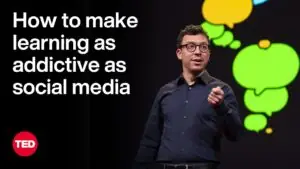Mastering a new language is a journey filled with triumphs, challenges, and, often, a generous dose of humor. In a delightful twist to this quest, beginner language learners from around the globe have come together to share their most amusing linguistic blunders. From unintentionally using inappropriate words to hilarious pronunciation errors, these tales offer a light-hearted exploration into the complexities and nuances of learning a new language. As you read on, be prepared for a dose of laughter and a lot of empathetic nods as we dive into the amusing world of language-learning misadventures!

✅ AI Essay Writer ✅ AI Detector ✅ Plagchecker ✅ Paraphraser
✅ Summarizer ✅ Citation Generator
Key Takeaways:
- Learning a new language is a complex process that often involves humorous errors and misunderstandings.
- Direct translations between languages can lead to awkward or amusing situations.
- Pronunciation errors, particularly in tonal languages, can drastically alter the meaning of words, causing potentially embarrassing misunderstandings.
When Words Don’t Mean What You Think
Jake is a beginner language enthusiast whose passion for learning Japanese led him to a hilarious linguistic stumble. Recalling his first language learning fiasco, Jake shared:
“I once asked how to say the ‘for’ in ‘thank you (for)’ in Japanese. I often didn’t realise it doesn’t work the same as English…not my best moment!”
Jake’s humorous misstep highlights the complexity of translating directly between languages, as grammar and syntax rules often differ greatly.
Cock-a-Doodle-Doo or Seven?
In a humorous recounting of a dining mishap, one learner found out the hard way that even simple counting can be fraught with danger. In Cantonese, the words for seven and nine differ only in tone from swear words, leading to an embarrassing public correction from a young nephew. The incident left diners in stitches, but it served as a potent reminder of the importance of tonal languages and how pronunciation can drastically change a word’s meaning.
“Ma’am” Turns into “Mom”
The complexities of British English were a learning ground for another language enthusiast. Their attempt to address a woman as “Ma’am” accidentally came out as “Mom.” This linguistic hiccup gave the entire bar, including the woman, a good laugh. The subtleties of pronunciation can indeed be challenging to master for beginners.
UK. Third week in Newcastle. I needed to get a woman’s attention, but I wanted to… you know… be polite about it. I really, really wanted to say “Ma’am”. I was sure I had mastered the little skip in “Ma’am”. But then I called her “Mom”.
EDIT: Yes. I was heard. By several people. My new mom included. Her friends, too. My friends, too. The bartender, too. The servers, too. The next table, too. She was forgetting her purse. I was a little loud.
Tackling Nuance in Italian and Farsi
When it comes to nuances in languages, Italian seems to hold its fair share. One language learner shared a humorous encounter with an Italian tutor after a summer break. In their excitement to see her again, they ended up using the word “eccitato,” which is predominantly used in a sexual sense, causing some awkward laughter.
“After a summer pause, I met my Italian tutor again. I was excited to see her again. But I started by saying “sono eccitato per vederla”. She graciously pointed out that eccitato is really only used in a sexual sense.”
A similar faux pas occurred to a Farsi learner who wanted to convey to her father-in-law that her mother-in-law missed him. In her attempt to express this, she implied something much more intimate. These incidents remind us of the need to understand cultural nuances and context when learning a new language.
When You Forget a Simple Word or Say the Wrong One
One language enthusiast’s attempt to explain spicy sushi to a Japanese friend led to an unexpected twist. In the heat of the moment, she blanked on the word for Salmon and inadvertently used an inappropriate word, causing confusion and laughter.
Meanwhile, a Spanish beginner found himself in a sticky situation when he attempted to express that he was feeling hot. Instead, he unintentionally conveyed he was feeling horny. These situations highlight the challenges of vocabulary recall under pressure and the potential for hilarious misinterpretations.
From getting lost in translation to humorous pronunciation errors, these tales of language learning blunders illustrate the complexities of mastering a new language. Yet, they also highlight the invaluable lessons and laughter such experiences bring, serving as unforgettable stepping stones in the language learning journey.
Follow us on Reddit for more insights and updates.





Comments (0)
Welcome to A*Help comments!
We’re all about debate and discussion at A*Help.
We value the diverse opinions of users, so you may find points of view that you don’t agree with. And that’s cool. However, there are certain things we’re not OK with: attempts to manipulate our data in any way, for example, or the posting of discriminative, offensive, hateful, or disparaging material.